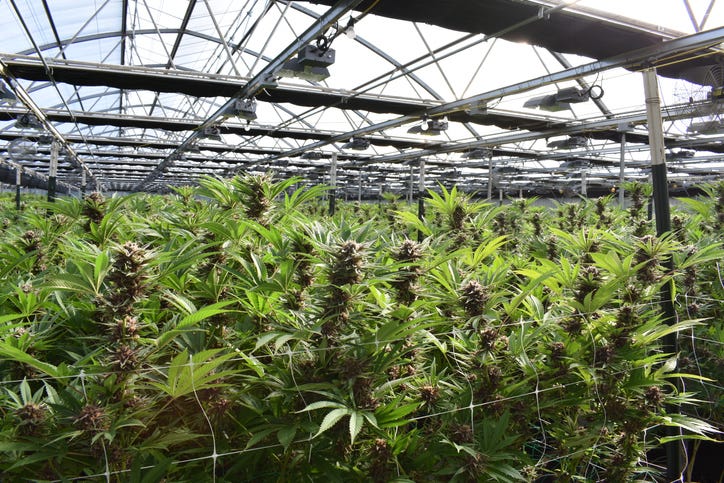
(WWJ) Two years after Michigan voters approved recreational marijuana use in the state -- Detroit is now preparing to issue business licenses that will prioritize local applicants.
Under a new ordinance that still needs City Council approval, Mayor Mike Duggan says no less than 50% of all licenses granted must be awarded to legacy Detroit residents.
To qualify as a Detroit Legacy Applicants (DLA) a person must live in Detroit for 1 year at the time of application AND meets one of the following:
1 - Lived in Detroit 15 of the past 30 years
2 - Lived in Detroit 13 of last 30 years and is low income
3 - Lived in Detroit 10 of last 30 years and has a substance criminal record.
"There will be licenses for up to 75 recreational dispensaries," Duggan explained at a news conference Monday. "But here's the rule: No license will be issued to anybody if it brings the number of licenses issued down below 50% Detroiters.
"So what that means is, if ten Detroiters have a recreational license, and ten non-Detroiters have a license, and you come in as a non-Detroiter, you won't get licensed."
Detroit residents will also receive first priority and discounts on application fees and city land, officials said.
If the legislation if approved by the Detroit City Council, city residents will have the first opportunity to apply in April 2021.
Following a series of discussions and public hearings, passage would allow licensing for the following state approved categories: medical marijuana provisioning center, adult use retailer establishment, grower, processor, safety compliance facility, temporary marijuana event, microbusiness, designated consumption lounge and secure transporter.
This comprehensive program ensures that Detroiters who have been disproportionately impacted by the nation’s failed “War on Drugs” will have an equitable opportunity to sustainably participate in the state’s legal adult-use ma-rijuana industry, supporters said, which according to experts is predicted to mature into $3 billion in annual sales.
“We have taken the necessary time to craft legislation that is not aimed at excluding anyone from their goals to succeed in this market but to ensure that we legally provide a pathway towards inclusion and opportunity for residents of our city, which has been disproportionately impacted by marijuana convic-tions”, said Councilman James Tate. “Many are now profiting from the same plant that has led to countless criminal convictions which devastated countless families within our city. The time has come for equity currently not present within Detroit’s cannabis industry.”
To ensure that Detroiters remain in the forefront of this historic legislation, Councilman Tate enlisted assistance of industry professionals as well as grass-root advocates to help craft the SEP section of the ordinance. The SEP allows the City of Detroit to provide significant reductions in application fees for legacy Detroiters, including those who have been convicted of past marijuana related offenses as well as Detroiters federally identified as low income.
There are also discounts on certain city-owned properties that will be available for residents certified as Legacy Detroiters.
“In the past when licenses for marijuana businesses become available, they tend to go to non-residents, rather than those who live in this community,” said Duggan. “What Councilman Tate has crafted here in partnership with our law department ensures that longtime Detroit residents will have the opportunity to build real wealth as part of this lucrative new industry.”
